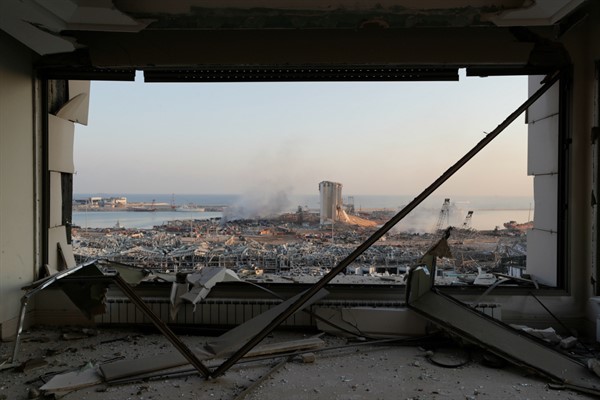In the week and a half since the catastrophic explosion at Beirut’s port, Lebanon’s Cabinet announced that it would resign, countries like France and the United States have promised to help rebuild, the Lebanese have seethed—and no one has been held accountable, except for a few port officials. “My government did this,” reads graffiti on a wall near the port, against a backdrop of the destruction. “You literally blew us up,” reads another message, spray-painted on a storefront nearby. At least 171 people were killed in the explosion, and thousands more were wounded.
While the full cause of the blast is still being investigated, its broad outlines are the worst indictment yet of a political elite whose corruption and venality have crippled Lebanon for years. More than 2,750 tons of highly explosive ammonium nitrate, confiscated from an impounded ship bound for Mozambique, had been sitting in a warehouse in the port since the end of 2013. For years, different officials knew of a ticking time bomb right next to residential neighborhoods; in many of them, new apartment buildings, including some glitzy developments by leading Lebanese architects, had gone up directly overlooking the port.
According to a U.S. assessment by the State Department, reported on by The Wall Street Journal, the explosion was likely caused by maintenance work, which “set fire to other unspecified materials stored at the port” and then “ignited the chemical stockpile.” Lebanon’s military has apparently reached similar conclusions. Reuters reported that Lebanese security officials warned the president and prime minister last month about the dangerous cache of ammonium nitrate, “which could destroy the capital if it exploded.”

